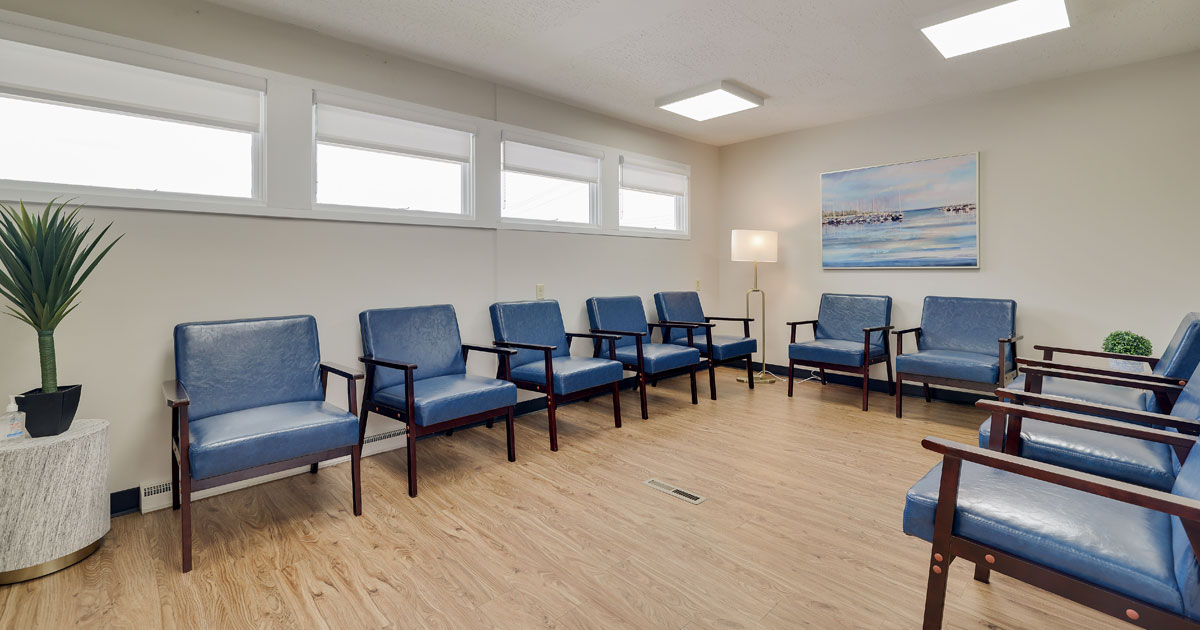Who Needs Alcohol Rehab?
Alcohol rehab is a general term that refers to programs and therapies used in a professional setting to treat alcohol use disorder. These programs are designed to address individuals who drink heavily on a regular basis, increasing alcohol tolerance to the point where the brain and body have become accustomed to the presence of alcohol. When this occurs, both the brain and body cannot function normally without it. This means a physical dependency has occurred and is one of the hallmark signs of alcohol use disorder.
When alcohol is not present in an individual with alcohol dependence, withdrawal symptoms can occur, ranging from mild to life-threatening. A person may experience body aches, shakes, nausea, headaches, flu-like symptoms, and even seizures, which can be extremely dangerous. The desire to curb withdrawals by drinking more alcohol can become a vicious cycle. Drinking begins to affect home life, work life, and the ability to develop and maintain healthy relationships.
What Is Outpatient Alcohol Treatment?
Outpatient rehab options can be a better fit for individuals who want to end their alcohol dependency but have persistent outside obligations such as work or family. This form of treatment is a popular and effective way to get the tools and support necessary to begin recovery while keeping existing responsibilities.
Outpatient rehab provides a variety of services, such as medication assistance, counseling sessions, therapies, and support groups. As with inpatient treatment, a team of professionals, including a therapist, will work with the patient to determine what support will be best for their unique treatment program. Developing a comprehensive plan helps to ensure that the whole person is treated, including any underlying mental health issues.
Outpatient rehab centers help individuals overcome their life-threatening drinking behaviors and help that person better recognize, avoid, and deal with their triggers. It is common for outpatient programs to meet every day at first, then tailor the program to fit the individual as time moves on. This could take weeks or months, depending on progress.
Outpatient Alcohol Rehab in PA

Admitting you need help addressing your drinking is the first step in breaking the chains of an alcohol use disorder, but a close second is seeking treatment to help you begin recovery. When you seek treatment at a center like Recovery Cove, your treatment services are carefully tailored to your unique needs. Upon entry, patients are typically seen first by a therapist. The therapist is there to help create a personalized treatment plan. This plan often uses CBT and other evidence-based techniques that have shown success in aiding the recovery process. Having a safe, therapeutic healing environment provides you with the tools and support you need to build relationships and establish goals that assist in recovery.
Drug and alcohol treatment centers in PA typically offer a wide range of rehab options, including inpatient and outpatient recovery support. Which treatment option works best for you depends on your unique needs and the nature of your alcohol use disorder. For many people, outpatient therapy options provide the support they need while allowing them to continue schooling, employment, and rebuilding relationships in their everyday life.
What Is Inpatient Treatment?
When people think about rehab, they often picture what they have already seen on TV or in movies. In these instances, the person seeking treatment is usually sent to a facility, where they remain for days, weeks, or even months. The person is often seen moving into a room, attending individual and group therapy sessions, and seeing visitors on structured occasions. This is a representation of what inpatient treatment could look like, but the environment and rules vary among facilities.
Inpatient alcohol treatment means patients will enter a setting that provides 24/7 supervised care and support. They will live, eat, sleep, and attend therapies on-site. This is an immersive and supportive environment that is tailored to provide consistent, on-demand support. Inpatient therapies often experience a personalized variety of research-backed therapies to ensure the best treatment and pursue lasting recovery.
Inpatient treatment is a more intensive approach to treating alcohol use disorder than outpatient treatment. While this form of treatment works for many, it can be very demanding of a person’s time and will require most to step away from work, school, and family responsibilities for days, weeks, or months. For those who want carefully tailored treatment without having to reside in a facility, outpatient alcohol treatment can be a better fit.
Inpatient or Outpatient Rehab in Pennsylvania?
There is a misconception that outpatient rehab cannot provide the same results as an inpatient treatment center. This couldn’t be further from the truth. While outpatient rehab allows the person to carry on with their outside obligations, it is still carefully tailored to provide ongoing support and provide the necessary treatments and therapies.
What program, inpatient or outpatient, will work best for you depends on your needs. A person who has a stable home environment and does not have severe dependence can often thrive in an outpatient program. However, inpatient treatment may be best for someone who has been struggling with a long-term dependency or with an unstable home environment.
Types of Outpatient Rehab Programs in PA
There are several types of outpatient programs available in PA. It is common to see day programs, intensive outpatient programs, and general outpatient programs. Your therapist will work with you to determine what type of program is best for your unique situation. In many instances, a patient will work their way through more than one program, starting with more intensive options until a foundation is established. Then, less intensive programs can provide needed support but allow the patient greater freedom to live their daily life.

Partial Hospitalization Programs (PHP)
This level of care is often considered the first step down for those who either attended an inpatient treatment program or would have benefitted from attending such a program. PHP allows a person to continue living at home and meeting their outside obligations while receiving consistent, daily support. This program is often referred to as day treatment.
It is common for people in a PHP to meet five to seven days a week and participate in full- or half-days. Most PHPs offer a variety of therapy settings, such as individual, group, and family sessions. They also feature educational seminars, meetings, and activities, all designed to promote a healthy lifestyle by providing tools to help prevent relapse. At the end of the day, a person can return home to their outside life.
While this option is considered the most demanding of the outpatient formats, clients usually move out of this program within a few weeks or months. Movement depends on initial condition as well as progress over time.
Intensive Outpatient Program (IOP)
This program is considered a step down from PHP, as meetings typically occur just a few days a week. IOP continues to provide the customized treatment options mentioned above but is designed to allow an individual to maintain their daily routine on a more consistent basis. Some facilities, including Recovery Cove, offer both daytime and nighttime options to provide greater flexibility.
The purpose of an intensive outpatient program is to help individuals transition from a highly structured support system to one that continues to provide support and treatment but with greater flexibility. This provides them the opportunity to utilize the tools and techniques they have learned, with the comfort that comes with knowing additional resources are readily available.
Outpatient Program (OP)
General outpatient services are for those who no longer require the more intensive the outpatient levels of care (PHP and IOP). These programs are designed to focus on reinforcing the various tools and techniques that have been developed in earlier, more intensive programming. Treatment may involve as few as two days of therapy for only a few hours at a time.
General outpatient programs continue to provide the same tools as other outpatient program types but do so on a limited basis, according to the needs of the individual. This program provides the best opportunity to begin to experience sober life, use the tools already developed, and test the ability to handle triggers and various pressures. As with any outpatient program, support is still there as needed when needed.
Types of Outpatient Therapy and Support
There are a variety of therapies that can be used in an outpatient rehab setting to provide support and build coping tools. These therapies are designed to provide and reinforce a foundation of healthy decision-making, problem-solving, and an awareness of triggers and pressures that formerly led to the decision to turn to alcohol.
Medication Assisted Treatment (MAT)
Depending on the level and length of physical dependency, some individuals need medication intervention to help them detox and get through the initial withdrawal period. As mentioned, withdrawal can have serious, life-threatening repercussions. In some instances, medication is needed to minimize these symptoms, as well as provide support for the brain as it tries to restore balance and return to normal function. Carefully prescribing and monitoring medications is important to ensure that a new dependency is not created and that the patient can safely taper off the medication when no longer needed.
Individual Therapy
Meeting one-on-one with an experienced professional helps build a better understanding of the underlying mental health conditions and/or triggers that led to alcohol use disorder. There is no one way people develop alcohol use disorder, so therapy will look different for everyone. It is valuable to understand and learn how to face unique individual triggers, uncover co-existing mental health conditions, and develop healthier ways to deal with trauma.
Group Therapy
Alcohol use disorder can be isolating, and group therapy provides a much-needed atmosphere of community and support. These sessions are run by a therapist and attended by a group of individuals who are in various stages of treatment. By allowing people to share stories, struggles, and accomplishments with peers, group therapy can help combat feelings of isolation and provide lasting support.
Family Meetings
Alcohol addiction rarely only affects the individual. In most instances, close relationships can be impacted and damaged. This can include relationships between patients and their parents, spouses, children, or friends who play an active role in their daily life. Family meetings help to educate both the individual and the family member about alcohol use disorder. They can also help the family to address the hurt and other negative feelings brought about by substance misuse, as well as develop the tools and techniques necessary to move forward.
Education and Skill Building
There are countless misconceptions concerning alcohol use disorder and SUD in general. A variety of educational seminars may be used by an outpatient facility to provide information about the psychological and social impacts of substance use as well as the science and research behind recovery. Proper education and coping skills can go a long way toward supporting long-term sobriety.
Outpatient Rehab for Alcohol Addiction in PA

If you are seeking treatment and support for alcohol use disorder, whether for yourself or a loved one, Recovery Cove can help. Our professionals can help you decide if our outpatient services are the best for your long-term recovery goals.
Clinical Director
Christine Todd is a Licensed Professional Counselor and an Advanced Certified Drug and Alcohol Counselor who enjoys working directly with a population that struggles with addiction and mental health disorders. Christine brings many years of clinical experience to the team at Recovery Cove, where she is currently the Clinical Director. In her role, she oversees the clinical department as a leader, educator and mentor, designing programming and protocols for a diverse client population.
Learn More About Christone Todd, MS, LPC, CAADC










